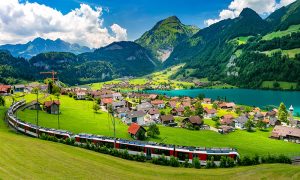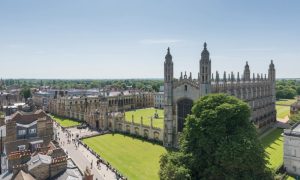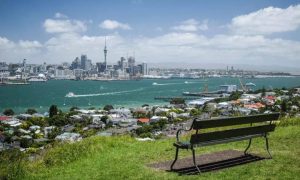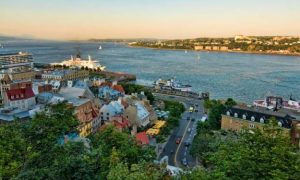The Netherlands, as a European country full of opportunities and multiculturalism, attracts globalimmigrantsThe Netherlands offers a wide range of opportunities, whether for work, study or family reunion. Whether for work, study or family reunion, the Netherlands offers a wide range of opportunities. However, as a country with a high standard of living, the cost of living in the Netherlands is also an important factor that migrants must consider. For those planning to move to the Netherlands, it is crucial to understand the cost of living and plan your budget wisely. In this article, we will analyze in depthImmigration to the Netherlandsof the cost of living to help you prepare your budget and ensure a smooth adjustment to your new living environment.
I. Housing costs
Housing is usually one of the biggest expenses in the Netherlands, especially in big cities like Amsterdam, Rotterdam and The Hague. The Dutch housing market is highly competitive and rental prices are relatively high. Depending on the city and the residential area, rental prices vary considerably.
- Amsterdam, capital of Netherlands: As the capital and largest city of the Netherlands, rents in Amsterdam are among the highest in the Netherlands. A studio apartment in the city center rents for around 1,200 to 1,800 euros per month, and a 1-bedroom apartment may cost more than 1,500 euros. In peripheral areas of the city, such as the outskirts of Amsterdam, rents are relatively inexpensive and a 1-bedroom apartment may cost between 1,000 and 1,400 euros.
- Rotterdam and The Hague: Rotterdam and The Hague, the main large cities in the Netherlands, are slightly cheaper compared to Amsterdam. A studio apartment in the city costs around 1,000 to 1,500 euros per month, while rents on the outskirts of the city range from 800 to 1,200 euros.
- Small cities and rural areasIf you choose to live in another small city or rural area of the Netherlands, the rent will be significantly lower. The rent for a studio apartment in many small towns ranges from around 700 to 1,100 euros.
In general, the cost of housing in the Netherlands depends on the city and the area you choose to live in. If you choose a large urban center, rent can be the biggest burden on your living expenses. If you can choose the right area or share a room with someone else, the cost of living will be much lower.
II. Food and daily expenses
Food prices in the Netherlands are slightly higher than in many other European countries, but are still relatively affordable compared to some Western European countries. Daily food expenses depend largely on the individual's lifestyle and eating habits.
- Supermarket Shopping: Large supermarkets in the Netherlands, such as Albert Heijn, Jumbo, Lidl and Aldi, offer a wide range of ingredients for consumers to choose from. In general, the main shopping expenses include vegetables, fruit, meat, dairy products and bread. Weekly expenses for basic foodstuffs range from about 40 to 80 euros, depending on individual spending habits.
- dine out: Eating out is relatively expensive in the Netherlands. A simple fast food meal (e.g. a burger or a sandwich) costs around 6 to 10 euros; a full meal in a normal restaurant costs around 15 to 25 euros. In larger cities such as Amsterdam, restaurants can be slightly more expensive, especially near tourist attractions.
- Coffee and beverages: The Dutch love their coffee, and in almost every café you can find customers leisurely enjoying a cup of strong coffee. A regular Americano or latte costs between 2 and 4 euros.
III. Transportation costs
The Netherlands has a well-developed transportation system with easy access to public transportation, and cycling is also the most common way for Dutch people to get around. Transportation costs vary depending on how you travel and where you live.

- mass transit: The Netherlands has a very good public transportation network, including trains, buses and subways. Monthly and one-way passes are usually available in large cities and towns in the Netherlands. A monthly ticket for public transportation in Amsterdam costs around 90 to 100 euros. For residents who occasionally use public transportation, a one-way ticket costs around 2 to 5 euros.
- bicyclesThe Netherlands is known as the "Bicycle Kingdom" and almost everyone has a bicycle. Bicycles are not only the most common means of transportation in the Netherlands, they are also an environmentally friendly and economical choice. A new bike costs around 300 to 600 euros, while a second-hand bike is much cheaper, usually costing between 100 and 200 euros.
- private car: If you choose to own your own private car, you will have to cover the costs of gas, parking and vehicle insurance in addition to the purchase price. Parking is a big problem in the Netherlands, especially in big cities, and can be quite expensive. Fuel costs around 1.7 to 2 euros per liter.
IV. Health insurance and social security
The Netherlands has a very good healthcare system, but health insurance is compulsory and all residents must have basic health insurance. The cost of health insurance varies according to age, insurer and package chosen.

- basic medical insurance: For most people, basic health insurance costs about 100 to 150 euros per month. This fee covers basic medical services such as visits to the doctor, hospitalization and prescription drugs.
- Supplementary medical insurance: If you require a higher standard of medical care (e.g. dental treatment, physiotherapy, etc.), you can choose to take out additional supplementary insurance, which costs around 30 to 50 euros per month.
- social security: The Netherlands has a well-developed social security system, including pensions, unemployment insurance and work injury insurance. As a resident, you are automatically enrolled in social security and pay social security contributions according to your income level.
V. Recreational and cultural activities
The Netherlands is a country rich in culture and entertainment. Whether you like to visit museums, go to the movies or attend festivals, there are tons of options. However, entertainment is relatively expensive.
- Cinema and Theater: A movie ticket costs around 10 to 15 euros. There are many museums and cultural centers in the Netherlands, and many cities have museum passes, usually priced at 50 to 70 euros/year, which allow unlimited access to major museums.
- Gymnasium and sports activities: If you want to stay healthy, joining a gym is a good option. Monthly fees for gyms in the Netherlands are around 30 to 60 euros. For those who like to be outdoors, the nature of the Netherlands is perfect for running, cycling and hiking.
VI. Summary
The cost of living in the Netherlands is relatively high, especially in terms of housing and transportation costs, but salary levels are also relatively high compared to other Western European countries. ForImmigration to the NetherlandsIt is vital to plan your living budget wisely. Depending on your city of residence and lifestyle, the cost of living in the Netherlands can fluctuate. Knowing and planning your finances in advance can help make your life in the Netherlands smoother and more comfortable.
Overall, the high quality of life and social benefits in the Netherlands will provide you with an ideal environment to live and work in, and you can easily enjoy the colorful life in the Netherlands as long as you organize your budget properly.






